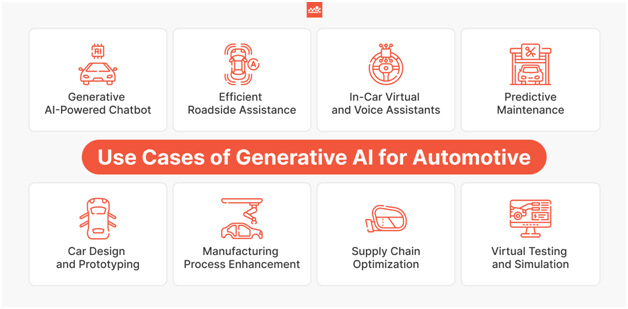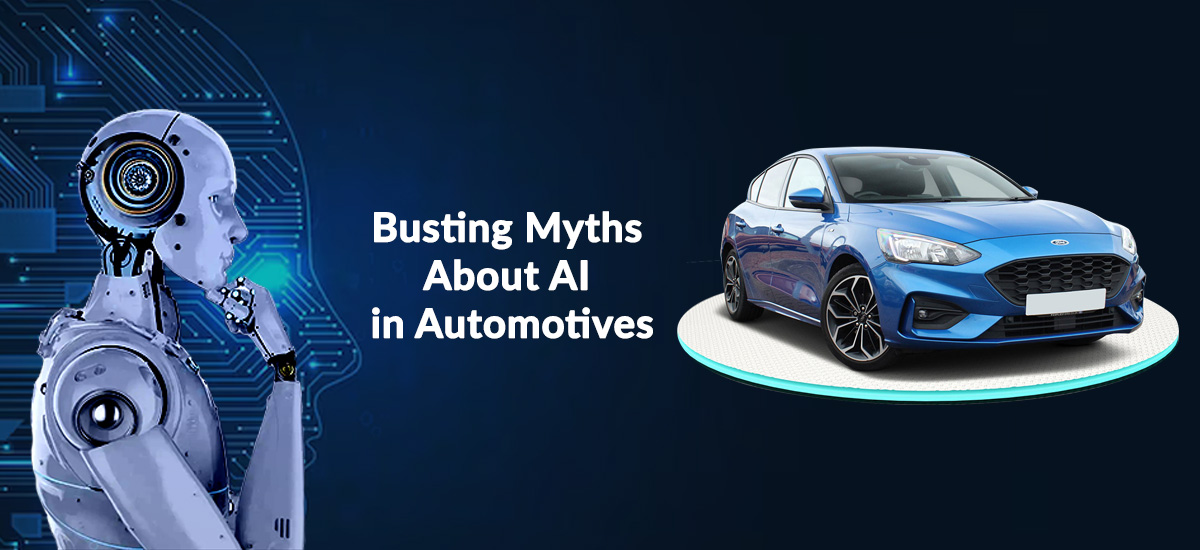In recent years, the automotive industry has made significant strides in innovation, largely due to advancements in technology. Among the most buzzworthy developments in automotive artificial intelligence in 2024.
Nevertheless, new technologies inevitably give rise to a plethora of misconceptions and unfounded beliefs surrounding AI’s use in the automotive industry. Regrettably, these misconceptions often overshadow the practical application of AI technology in the industry.
Thus, this article will dispel some of the common myths surrounding AI in automobiles By shedding light on the potential and impact of AI, we aim to unveil the reality behind the hype surrounding AI in automotive technology.
Myth 1: AI Will Steal Sales and Service Jobs
A prevalent myth surrounding AI in the automotive industry is that it will render human sales and service staff unnecessary. However, this misconception stems from a lack of understanding of AI’s role and capabilities in this sector. Instead of replacing humans, AI car branding solutions and chatbots are meant to supplement and assist the efforts of sales and service teams.
The major application of AI will be:
- Handling routine inquiries
- Enable human staff to devote more critical inquiries
- Collect & analyze customer data
- Provide valuable insight to aid sales staff
Overall, automotive artificial intelligence for sales & marketing will enhance the capabilities of human employees, and help them work effectively & efficiently.
Myth 2: AI is Only Good for Automated Responses
Many people falsely believe that AI in the automotive industry is only useful for generating automated responses, like those seen in chatbots. Indeed, this narrow view fails to recognize the various capabilities of AI technologies.
In addition to automating responses, AI can improve the presentation and marketing of cars through sophisticated features such as license plate inlay and car background replacement & enhancement.
AI in automotive solutions can infuse features like:
- Predictive Maintenance
- Personalized Driving Experiences
- Connected Vehicles
- Meticulous Quality Control
- Traffic Congestion Optimization
- Fuel consumption analysis
Besides, AI car image processing is also enabling dealerships to showcase their vehicle most aesthetically on listing platforms. Overall, automotive artificial intelligence has versatile applications for businesses and users.
Image source: https://masterofcode.com/blog/generative-ai-in-automotive
Myth 3: AI Provides Robotic and Limited Experiences
One commonly held misconception is that integrating AI technology into automotive systems will result in robotic and uninteresting customer experiences. However, this couldn’t be further from the truth.
Modern-day AI solutions are capable of imitating human speech and providing personalized interactions in different instances, such as:
- Customer Support During Emergency
- Lead Capture and Nurturing Bot
- Service Appointment Booking
- In-car Virtual Assistant
With machine learning and natural language processing, conversational AI can understand and respond to a vast range of queries; imbuing the interactions with nuance and context awareness that closely resemble human interaction.
Myth 4: AI Only Affects Luxury Brands
Contrary to popular belief, the integration of AI in the automotive industry is not limited to high-end brands. Mainstream vehicles are also utilizing advanced driver-assistance systems (ADAS) and predictive maintenance through AI. This is rapidly enhancing the safety and convenience of driving for a wider range of consumers beyond the luxury market.
Besides, both small & large dealerships are leveraging automotive artificial intelligence in several ways, including
- Personalized Marketing
- Predictive Lead Scoring
- Dynamic Pricing
- Inventory Optimization
- Image Enhancement
- Online Listing
Overall, it is beneficial for every automotive business, regardless of whether they manufacture cars or sell them. For further insights, check out How Automotive Artificial Intelligence Revs Up Dealership Success.
Myth 5: AI-Driven Cars are Completely Autonomous
Although autonomous vehicles are a major area of AI development, the majority of AI-enhanced vehicles still necessitate human supervision. These vehicles offer assistance to drivers through capabilities such as lane-keeping assistance and adaptive cruise control. However, they have yet to completely replace the requirement for a driver’s attentiveness and control.
Myth 6: AI Compromises Privacy
One frequently voiced worry about the use of automotive artificial intelligence is that it will result in privacy breaches. And! The reason for this misconception is that it tracks the every move of the driver.
Here are some privacy features infused by AI in autonomous vehicles:
- Selective Cabin Monitoring
- Dynamic Privacy Zones (Interior camera capturing based on passenger preferences)
- Privacy-Preserving Biometric Authentication:
- Differential Passenger Profiles
- Ephemeral Trip Data Storage:
In actuality, though AI systems do require data to perform optimally, the strictest regulations and most advanced security protocols have been implemented to safeguard both driver privacy and data.
Myth 7: AI Makes Cars Unaffordable
Contrary to popular belief, the incorporation of AI technology into vehicles does not result in a significant increase in cost. In fact, as the use of AI technology becomes more commonplace, economies of scale come into effect, rendering these features more affordable.
- Here is how automotive artificial intelligence reduces car costs:
- Optimizing Manufacturing
- Predictive Maintenance
- Streamlining Supply Chains
Furthermore, the advantages of AI, such as better fuel efficiency and decreased maintenance expenses, can ultimately offset any initial expenditures.
Myth 8: All AI in Automotive is the Same
Lastly, there exists a misconception that all AI applications within the automotive sector are the same. However, AI’s involvement differs greatly – from optimizing production processes to elevating vehicle safety. And! even to revolutionize the customer purchasing experience. The array of applications serves to demonstrate the broad range of potential that AI has within the industry.
Wrapping Up
Overall, automotive artificial intelligence has a lot to offer, which can ease hassle for buyers, dealerships, manufacturers, and passengers. However, inappropriate myths are limiting the growth of this industry vertical .To make transportation more secure & personalized, we must debunk misconceptions and be optimistic.

